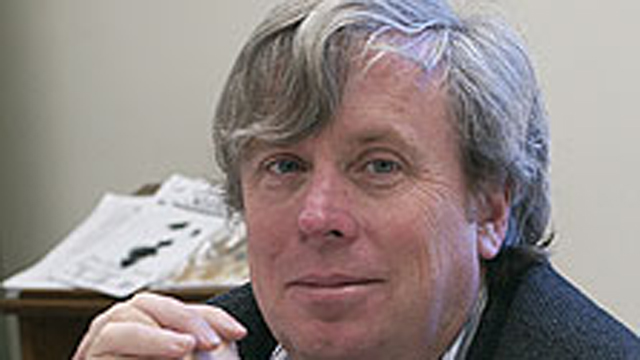Top Chefs in Washington, DC Discuss Sustainability and Animal Treatment

In a guest post today, Lauren Krizel reports on an event held this week in Washington, DC that gathered some of the city’s top chefs to discuss sustainability and the ethical treatment of animals. In a video as part of her post, she also interviews several of the attendees to gain their thoughts on the topics. Krizel is a student in this semester’s “Science, Media, and the Environment” course at American University — Matthew C. Nisbet
Tuesday, George Washington University’s Urban Food Task Force hosted a panel discussion entitled “Big Night, Big Jobs: Local Chefs Talk About Their Work in Setting America’s Table.” Four renowned chefs joined food writer Jane Black to discuss sustainability, animal treatment and nutrition.
One major theme throughout the discussion was the idea of balance and “doing the right thing” in terms of serving healthy, sustainable food in their restaurants.
Jose Andres, a Spanish chef, does not source his ingredients locally because his patrons come to his restaurant for Spanish food…from Spain. Andres said he often talks to people who preach buying local food, but then wear clothes made all over the world. Preach completely, he says. Local eating may not be possible for others, he said, for example, those living in northern Canada would have a very difficult time eating only locally grown food.
Spike Mendelsohn, who runs Good Stuff Eatery, said he’d like to purchase all grass fed beef, but it’s just not feasible due to the high price. Being an ambassador for a culture of sustainability is just as important as practicing sustainable food sourcing, Mendelsohn said. That’s why Mendelsohn has been working with the DC branch of KIPP charter schools to revamp their lunch program and teach students how to grow and cook their own food. When he asks kids where chicken comes from, he gets the same answer – the supermarket. It’s important for kids to know where their food comes from, and most do not grasp the reality, he said. Andres wants to see new mandatory curriculum for students that combines fun, science, and food. This kind of change can only happen from the top down, he says.
Nora Pouillon, who was a pioneer of the organic movement 30 years ago and now runs Restaurant Nora, says it was not easy to find organic products back then. She often had to educate her suppliers about how to raise the animals in a sustainable way.
A question Black seemed hesitant to ask was what the media’s effect is on the sustainability movement. Todd Gray, chef at Equinox, says the word sustainability is abused, and means different things to different people. He thinks about it as food sustainability but also sustainability in business. For a busboy to be able to have a house and support family is very important, and requires a sustainable business. The media focuses too much on environmental sustainability, Gray says. Another problem is that the media is attracted to controversy, and sustainability is not an inherently controversial issue.
After the panel, I spoke with some of the attendees. You can watch their reactions in the video below. What do readers think?
–Guest post by Lauren Krizel, an undergraduate student in the School of Communication at American University.
This post is part of the course “Science, Environment, and the Media” taught by Professor Matthew Nisbet in the School of Communication at American. See also other posts on debates over food by policy by Ms. Krizel and members of her project team. Also see other posts from project teams on the debates over climate change policy, energy policy, and reproductive health and on science communication more generally.





